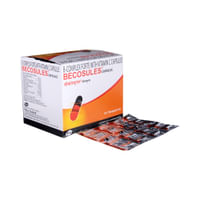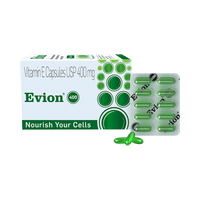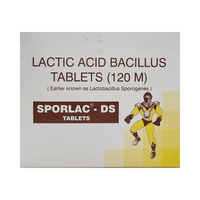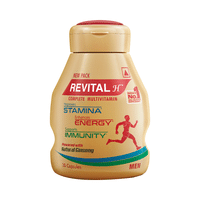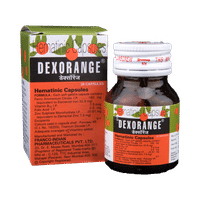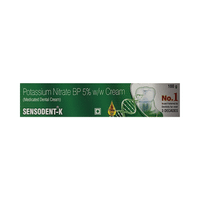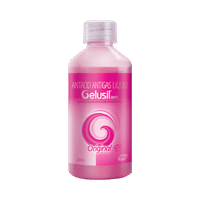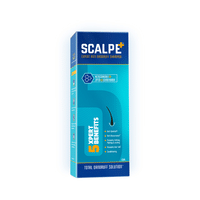Axobiotic Ear Drop
Composition FOR Axobiotic
Gentamicin(0.3% w/v),Clotrimazole(1% w/v),Betamethasone(0.025% w/v),Lidocaine(2% w/v)food interaction for Axobiotic
alcohol interaction for Axobiotic
pregnancy interaction for Axobiotic
lactation interaction for Axobiotic
food
alcohol
pregnancy
lactation
No interaction found/established
No interaction found/established
Information regarding the use of Axobiotic Ear Drop during pregnancy is not available. Please consult your doctor.
CONSULT YOUR DOCTOR
Information regarding the use of Axobiotic Ear Drop during breastfeeding is not available. Please consult your doctor.
CONSULT YOUR DOCTOR
SALT INFORMATION FOR Axobiotic
Gentamicin(0.3% w/v)
Uses
Gentamicin is used in the treatment of bacterial infections.
How it works
Gentamicin is an antibiotic. It stops bacterial growth by preventing synthesis of essential proteins required by bacteria to carry out vital functions.
Common side effects
Hearing loss, Joint pain, Headache, Breathlessness, Vomiting, Nausea, Fever, High blood pressure, Edema (swelling), Thrombophlebitis, Confusion, Depression, Drowsiness, Lethargy, Myasthenia gravis, Numbness, Paresthesia (tingling or pricking sensation), Peripheral neuropathy (tingling and numbness of feet and hand), Seizure, Vertigo, Hair loss, Urticaria, Decreased calcium level in blood, Weight loss, Clostridium difficile associated diarrhea, Decreased appetite, Enterocolitis, Urinary casts, Low urine output, Protein in urine, Renal toxicity, Agranulocytosis (deficiency of granulocytes in the blood), Anemia (low number of red blood cells), Hepatomegaly (enlarged liver), Increased liver enzymes, Hypersensitivity, Muscle cramp, Muscle weakness, Visual disturbance, Ringing in ear, Decreased creatinine clearance, Respiratory depression, Increased reticulocytes, Low blood platelets, Pulmonary fibrosis, Enlarged spleen, Laryngeal edema, Gastrointestinal bleeding
Clotrimazole(1% w/v)
Uses
Clotrimazole is used in the treatment of fungal infections.
How it works
Clotrimazole is an antifungal medication. It kills and stops the growth of the fungi by destroying its cell membrane, thereby treating your skin infection.
Common side effects
Blisters, Erythema (skin redness), Vaginal discharge, Genital peeling, Burning sensation of the penis (of sexual partner), Stinging sensation, Edema (swelling), Vaginal burning sensation, Skin irritation, Allergic reaction, Polyuria, Vaginal itching, Vaginal bleeding, Pain in vagina, Vaginal swelling
Betamethasone(0.025% w/v)
Uses
Betamethasone is used in the treatment of allergic conditions.
How it works
Betamethasone is a steroid which works by blocking the production of certain chemical messengers in the body that cause inflammation (redness and swelling) and allergies.
Common side effects
Weight gain, Mood changes, Behavioral changes, Skin infection, Hair follicle inflammation, Itching, Burning sensation, Cataract, Increased glucose level in blood, Bruising, Headache, Dizziness, Weakness, Fatigue, Visual disturbance, Nausea, Altered menstrual cycle, Impaired wound healing, Dryness, Stretch marks, Hypertrichosis (excessive hair growth), Skin atrophy, Miliaria (sweat rash), Perioral dermatitis, Allergic contact dermatitis, Hypopigmentation, Local site pain, Angioedema (swelling of deeper layers of skin), Decreased potassium level in blood, Hypersensitivity, Blindness, Pulmonary edema, Rebound effect, Cushing syndrome, Glycosuria, Glaucoma, Slow heart rate, Cardiac arrest, Arrhythmia (irregular heartbeats), Cushingoid syndrome, Perforated peptic ulcer, Pathologic fracture of long bones, Hypothalamic-pituitary-adrenal axis suppression, Charcot-like arthropathy, Steroid myopathy
Lidocaine(2% w/v)
Uses
Lidocaine is used for local anesthesia.
How it works
Lidocaine is a local anesthetic. It works by blocking the transmission of pain signals from the nerves to the brain. This helps to decrease the sensation of pain.
Common side effects
Allergic reaction, Application site reactions (burning, irritation, itching and redness)
SUBSTITUTES FOR Axobiotic
22 Substitutes
22 Substitutes
Sorted By
 Rs. 12.50save 89% more per ml of Ear Drop
Rs. 12.50save 89% more per ml of Ear Drop Rs. 80pay 38% more per ml of Ear Drop
Rs. 80pay 38% more per ml of Ear Drop Rs. 76pay 31% more per ml of Ear Drop
Rs. 76pay 31% more per ml of Ear Drop Rs. 69save 40% more per ml of Ear Drop
Rs. 69save 40% more per ml of Ear Drop Rs. 59save 49% more per ml of Ear Drop
Rs. 59save 49% more per ml of Ear Drop
Expert advice FOR Axobiotic
- Your doctor has prescribed Gentamicin to cure your infection and improve your symptoms.
- Do not skip any doses and finish the full course of treatment even if you feel better. Stopping it early may make the infection to come back and harder to treat.
- It is given as a drip (intravenous infusion) or as an injection directly into a vein or a muscle.
- Use caution while driving or doing anything that requires concentration as Gentamicin may cause dizziness.
- Your doctor may get regular blood, urine, or hearing tests while you are on this medication.
- Your doctor will ensure that you are well hydrated before and during treatment with this medicine.
- Inform your doctor if you are pregnant, planning to conceive, or breastfeeding.
- Discontinue Gentamicin and inform your doctor immediately if you get a rash, itchy skin, swelling of face and mouth, or have difficulty in breathing.
Frequently asked questions FOR Axobiotic
Gentamicin
Q. What is Gentamicin? What is it used for?
Gentamicin is an antibiotic used to treat bacterial skin infections. It may also be used to treat infected cuts and wounds. Gentamicin stops the growth of bacteria, which helps to resolve the symptoms.
Q. Is Gentamicin effective?
Gentamicin is effective if used in the dose and duration advised by your doctor. Do not stop taking it even if you see improvement in your condition. If you stop using Gentamicin too early, the symptoms may return or worsen.
Q. How to use Gentamicin?
Before using Gentamicin, clean and dry the affected area. Gently and thoroughly massage it into the skin. Be careful not to get the medication in your eyes or mouth. If Gentamicin gets in your eyes accidentally, wash with plenty of water and call your doctor if your eyes are irritated.
Clotrimazole
Q. What is Clotrimazole used for?
Clotrimazole is an antifungal medicine. It is used to treat fungal skin infections such as ringworm (fungal skin infection that causes a red scaly rash on different parts of the body), athlete’s foot (fungal infection of the skin on the feet and between the toes), fungal nappy rash and fungal sweat rash. It is also used to relieve irritation of the vulva (external thrush) and irritation occurring at the end of the penis, which may be associated with thrush.
Q. Clotrimazole is effective against which fungi?
Clotrimazole is effective against Trichophyton species which cause ringworm infection, athlete’s foot, and jock itch (fungal infection of the skin in the groin or buttocks). It is also effective against yeast known as Candida which commonly causes vaginal thrush (infection caused by an overgrowth of yeast called Candida albicans).
Q. I have started using Clotrimazole. By when can I expect to start seeing the improvements?
The symptoms of skin infection, such as itching or soreness, should improve within a few days of treatment. However, the signs such as redness and scaling may take longer to disappear. Do not stop applying this medicine before the duration advised by your doctor, even if you feel better.
Betamethasone
Q. How does Betamethasone work?
Betamethasone works by decreasing the inflammation caused by allergies. It reduces inflammation by blocking the release of certain natural substances that cause allergic symptoms such as swelling, redness, and pain.
Q. Is Betamethasone safe to use?
Betamethasone is safe to use when used in the dose and duration advised by your doctor. You should not take this medicine if you are allergic to Betamethasone or any of the other ingredients of this medicine. Furthermore, you should not take Betamethasone if you have an infection and have not yet started medicine (e.g., antibiotics) to treat it.
Q. Does Betamethasone cause hair loss?
No, Betamethasone is not known to cause hair loss. In fact, it may cause an increase in body hair growth (especially in females) on long-term use. Talk to your doctor if you get excessive hair growth on your body while taking Betamethasone.
Lidocaine
Q. What is Lidocaine used for?
This medication is usually applied by a healthcare professional to the area being treated or to the medical equipment as part of a medical procedure. It helps to numb the area and reduces the discomfort associated with the insertion of medical instruments such as needles or catheters. It also helps to reduce the pain and inflammation in conditions such as heamorrhoids (piles) and anal fissures.
Q. Is Lidocaine toxic?
If Lidocaine is used under the supervision of a doctor or as directed by your doctor, it is generally safe to use. However, using more than what is recommended may lead to a number of serious health issues such as numbness of mouth and throat if swallowed. This can lead to difficulty swallowing and even choking.
Q. How long does it take for Lidocaine to work?
Lidocaine is applied at the start of a medical procedure and takes 3-5 minutes for the numbing effect to occur.













